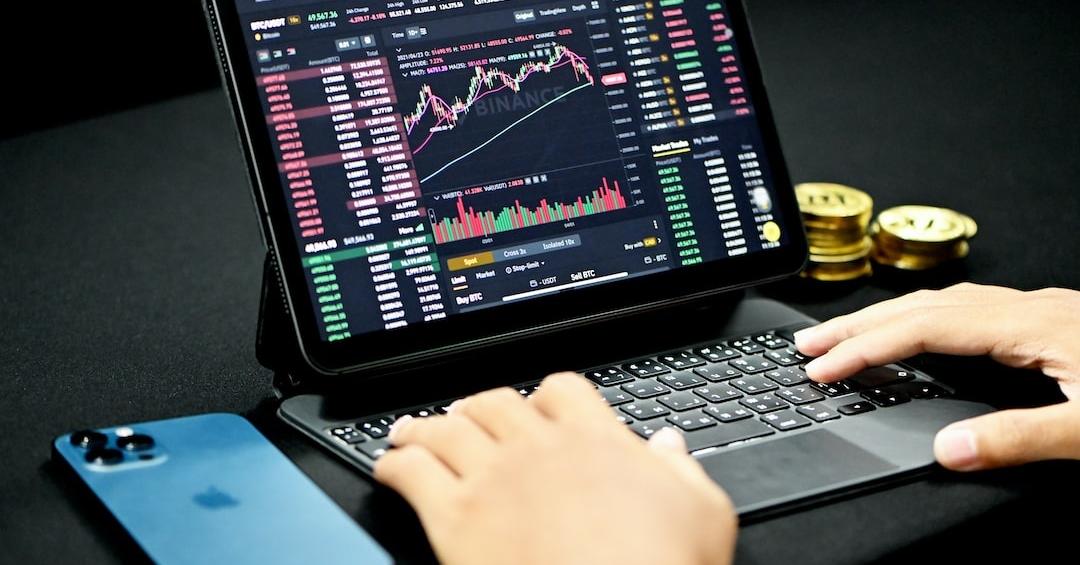Imagine that you’ve decided to dip your toes into forex trading. You have done your research, learned the basics, and even downloaded several stock market apps for iPhone or Android.
You are ready to take the next step and trade with real money. But there is one thing missing: a broker.
A broker is an intermediary that connects you to the forex market and executes your orders. Choosing the right broker is crucial for your success as a trader, as it can affect your trading costs, execution speed, security, and customer service.
But how do you choose the right broker among the hundreds of options available?
In this guide, we will unravel the key steps that every novice trader should follow when selecting a broker.
Define Your Trading Goals and Style
Before you start evaluating brokers, take a moment to introspect and define your trading goals.
Are you looking for short-term gains or long-term investments? Do you prefer day trading, swing trading, or a more passive approach?
Understanding your goals and trading style will help you filter out brokers that don’t align with your preferences.
For beginners, it’s advisable to choose a broker that offers a user-friendly platform and educational resources.
Look for brokers that provide demo accounts, allowing you to practice your strategies without risking real money.
Check Regulatory Compliance
The financial world can be a wild place, and having a regulatory framework in place ensures a certain level of security for traders.
Ensure that a reputable financial authority regulates the broker you’re considering. If you want to protect your funds and ensure fair trading practices, you shouldn’t trivialize this.
Common regulatory bodies that can look out for include the U.S. Commodity Futures Trading Commission (CFTC), the National Futures Association (NFA), and the Financial Conduct Authority (FCA).
Evaluate Trading Costs
Trading in the forex market comes with costs, and knowing them is essential for managing your overall profitability.
Different brokers have varying fee structures, including spreads, commissions, and overnight financing fees. As a beginner, you should look for brokers with competitive spreads and transparent fee structures to avoid surprises.
Consider your trading frequency and the size of your trades when evaluating costs.
Some brokers may offer zero-commission trading but compensate through wider spreads, while others may have lower spreads but charge a commission on each trade.
Choose the model that aligns with your trading style and financial goals.
Assess Trading Platforms
The trading platform is your gateway to the forex market, making it a crucial factor in your decision-making process.
Opt for a broker that provides a user-friendly and intuitive platform. Most brokers offer popular platforms known for their robust features and extensive charting tools.
Ensure that the platform is available on multiple devices, including desktop, web, and mobile versions. This flexibility allows you to trade seamlessly from anywhere, providing convenience and accessibility.
Consider Customer Support and Education
For beginners, having access to responsive customer support and educational resources can make a significant difference.
Look for brokers that offer excellent customer service, preferably with 24/7 availability through either email, call, or chats. This ensures that you can seek assistance whenever you encounter issues or have questions, regardless of the time zone.
Additionally, educational resources such as webinars, tutorials, and written guides can aid in your learning journey. A broker invested in your success will provide the tools and knowledge necessary for you to navigate the forex market confidently.
Minimum Deposits and Ease Of Payments
Different brokers offer various account types to cater to traders with varying levels of experience and capital. Evaluate the minimum deposit requirements for each account type and choose one that aligns with your budget.
For beginners, starting with a demo account or a low minimum deposit account allows you to test the waters without committing a significant amount of capital.
While you’re eager to know if the broker has a minimum deposit, you should also look out for how easy it is to move money in and out of your account. This is particularly important if you’re investing to supplement your regular income.
Even if you’re not after the money, it is still prudent to review the withdrawal and deposit methods of the broker you want to choose.
Test the Broker with a Demo Account
Before making a final decision, take advantage of a broker’s demo account. With a demo account, you can experience the trading platform, test your strategies, and get comfortable with the broker’s features—all without risking real money.
A demo account is an invaluable tool for beginners to gain hands-on experience and build confidence before transitioning to live trading.
Conclusion
If there’s one thing you have to get right while starting your forex trading journey, it’s choosing the right broker. It’s even more important these days as there are fakes out there.
However, you can set yourself up for a more informed and successful trading experience by sticking with all the steps we’ve given you above and test things out with a demo account.
